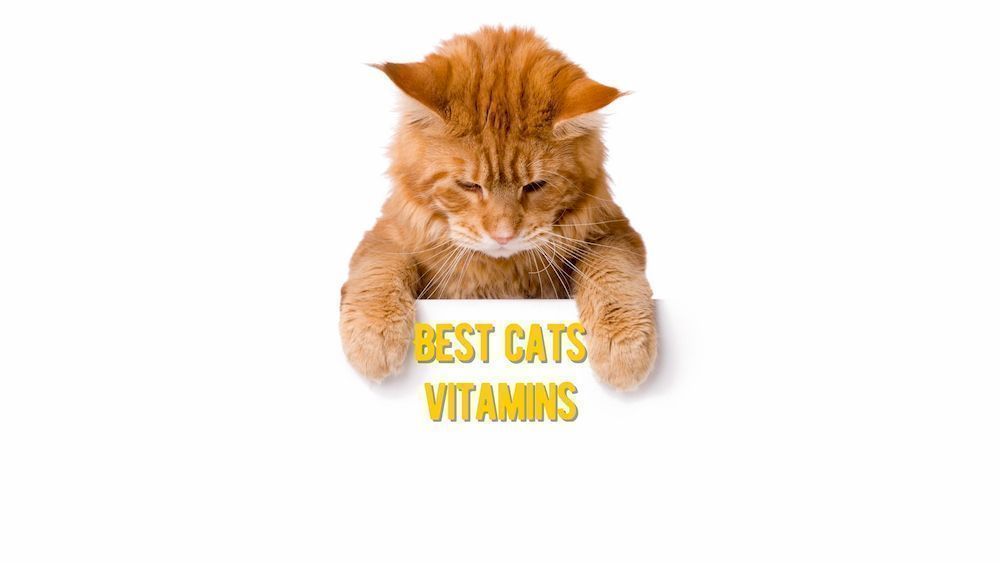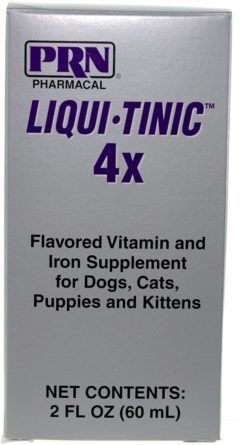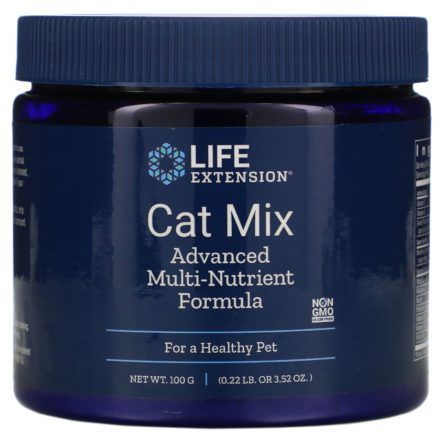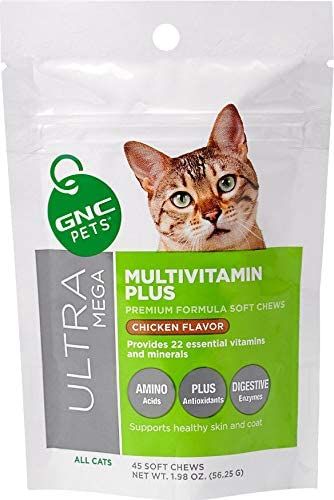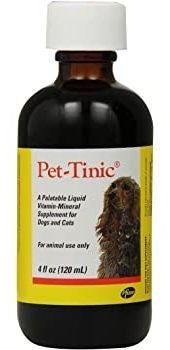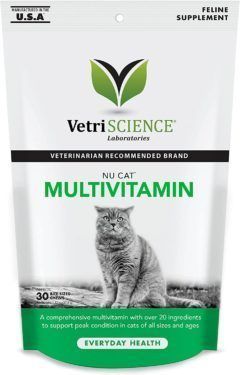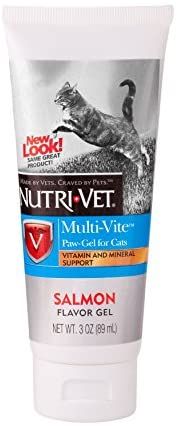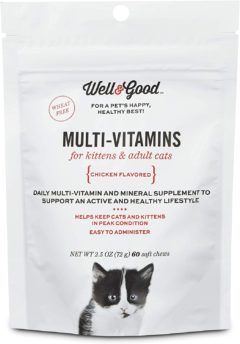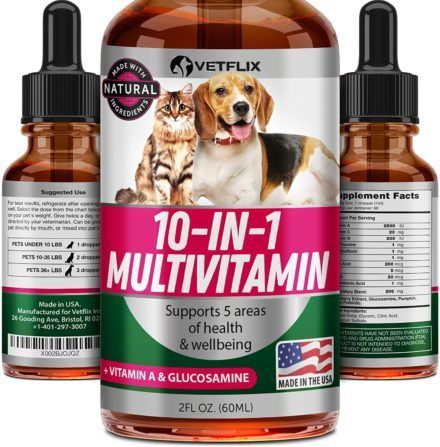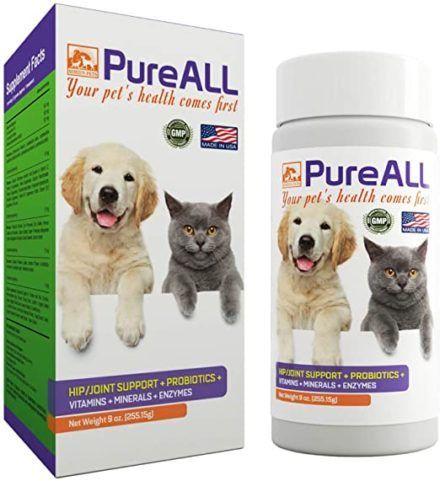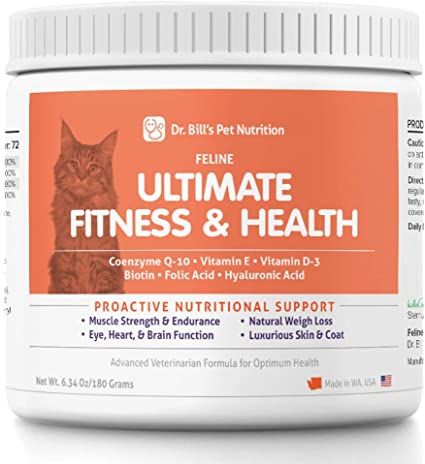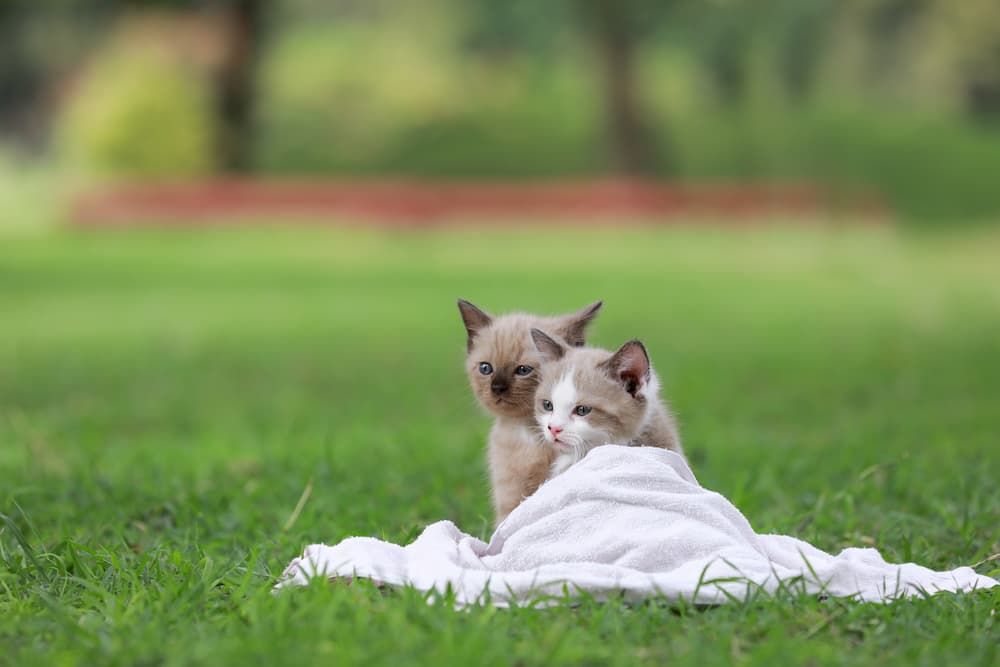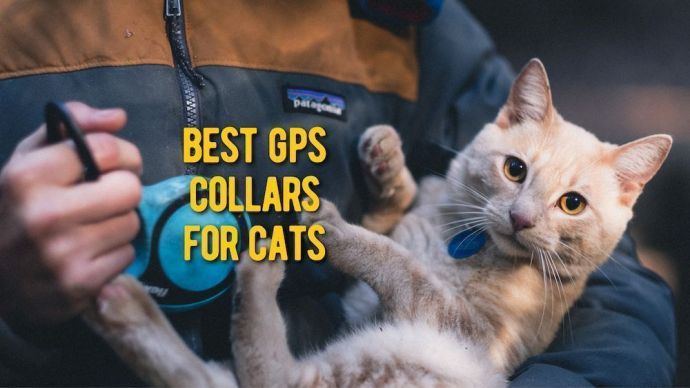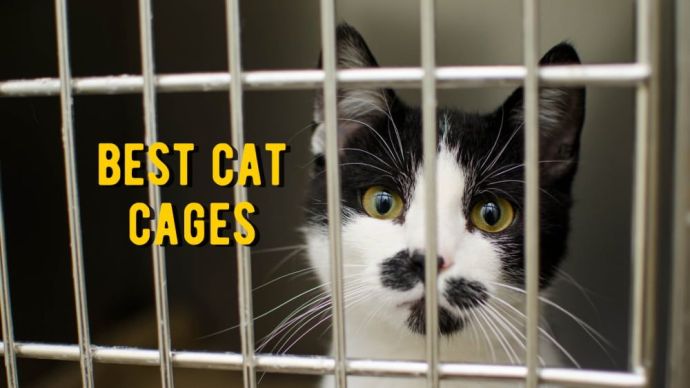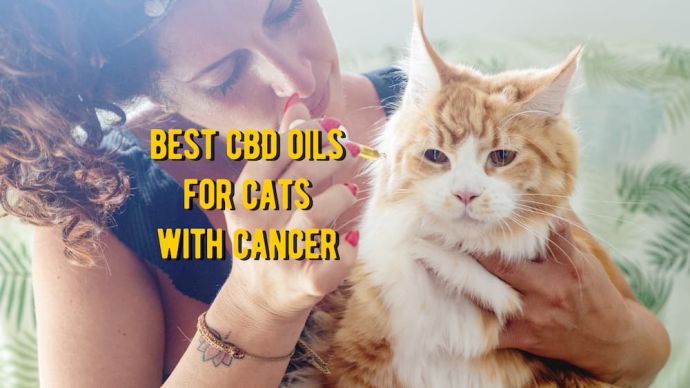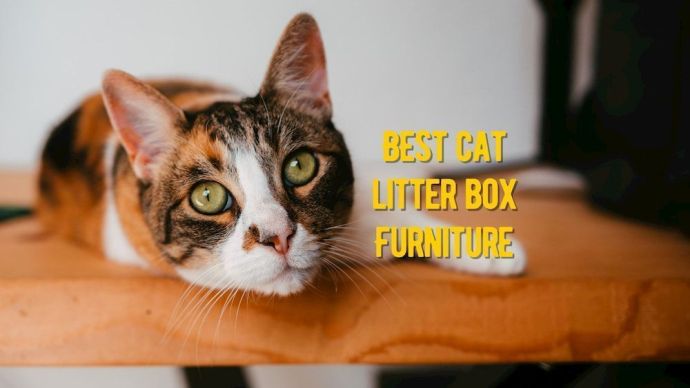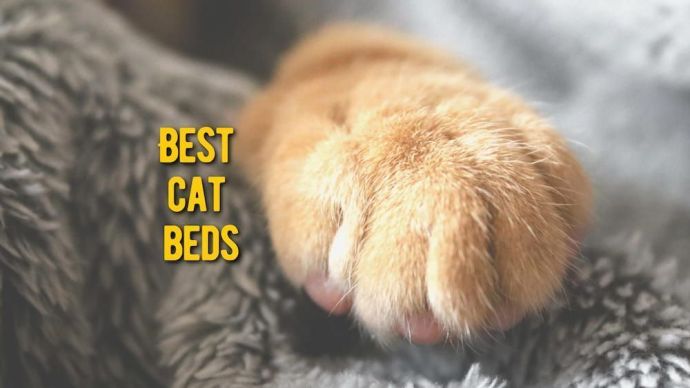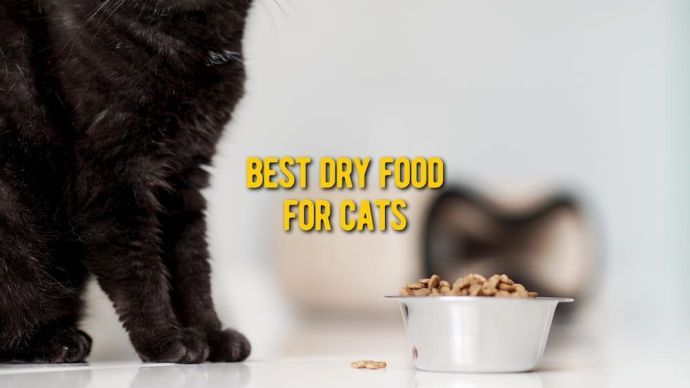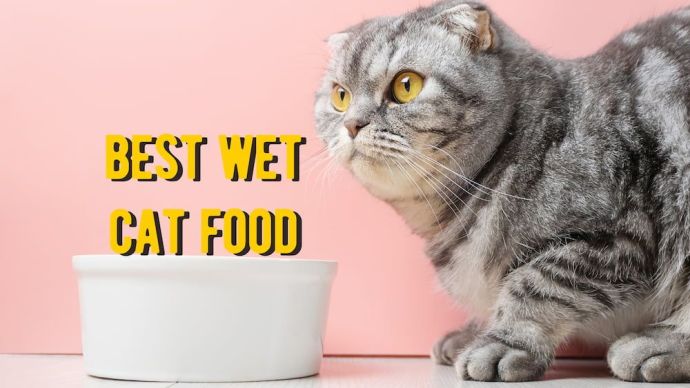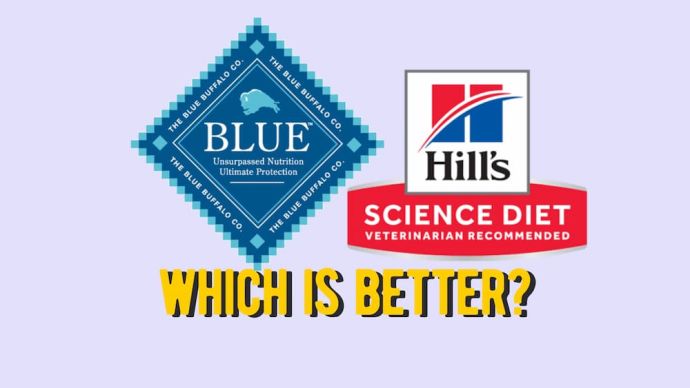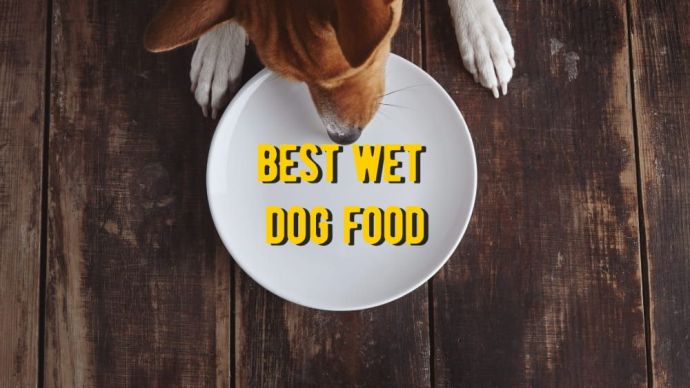The Best Vitamins for Cats (Vet Review)
Written by:
Author: Dr. Chyrle Bonk
Dr. Chyrle Bonk is an associate veterinarian since 2010 and was a volunteer for Clearwater County Youth 4H. Dr. Bonk contributed to various animal and veterinary related websites and magazines as a way to help keep animals across the globe safe and healthy. When Chyrle not working she spends her time with her own furry crew of dogs, cats, and horses.
View all 10 articlesLearn about our editorial process and veterinary review board.
Viewed: 2414
Updated on: 08/30/2022
Proper nutrients are crucial to the development and general well-being of pets, especially cats. One nutrient that plays a valuable role in the lives of cats is vitamins. These are nutrients that play a role in the production of antibodies that help their bodies fight off infections, help relieve achy joints and many other issues that they may experience. For this reason, pet owners must ensure that they feed them with the necessary vitamins that protect them at all times.
To provide the best nutrition, it is imperative to own the right type of information. This means having a proper understanding of which ones and how much your cat needs to stay healthy. All breeds require vitamins to function correctly, but older cats may need extra supplementation to help ward off health conditions that come with age.
Since vitamins are essential for a cat’s development, also it is important that they are made from organic and natural substances. Always know what ingredients are in supplements that you are giving your cat to ensure that you’re not offering something that is possibly detrimental.
When cats are given proper nutrition, there is little or no need for the use of supplements. While supplements may seem like a simple thing to feed a cat, they can be harmful if not administered properly. So, as with the use of any supplement, it is essential to discuss with your veterinarian before applying it to your pet.
One common problem associated with feeding is the need to maintain a healthy weight. Cats should not be over-weight or under-weight. When they are overweight, they suffer a health condition known as obesity, which can affect the general health. On the other hand, when cats are underfed, they may start losing weight and become sick. Such cats become more susceptible to diabetes. As such, any individual pet owners needs to take special care by ensuring that the pet eats right and is fed the right quantity of vitamins to ensure that they do not become sick unnecessarily.
The Best Vitamins for Cats (All Reviews)
It is also important to emphasize that these vitamins cannot be regarded as a complete meal for a cat, but instead may be given in addition to quality food to help ensure that a cat is as healthy as can be.
In this article, the best ten products are adequately discussed after extensive research. These vitamins are regarded to be the best among others on the market that guarantee your cats’ general well-being.
1. Liqui-Tinic 4x Flavored Vitamin and Iron Supplement
This product is suitable for cats. It contains essential nutrients such as amino acids, iron, and vitamin B complex, to aid the development. The nutritional supplement that contains necessary vitamins for the well-being. It is packed with amino acids, iron, and vitamin B complex. Interestingly, it is also easy to administer.
The product is suitable for cats over the age of eight months, and it contains 8 ounces in every container. The measuring scoop is also included in this product to ensure you get an accurate dose of the powder to add to food.
The best part about using this product is that even some of the most challenging cats will have no problem ingesting the supplement because it doesn’t have any filters or flavoring.
Pros
Cons
- Improves blood work.
- Increases appetite.
- Contains iron supplement.
- Not found.
2. Life Extension Cat Mix Advanced Multi Nutrient Formula
For cats to function properly, their health needs to properly take care of and this includes the condition of their heart too. This product contains numerous nutrients that take care of the heart conditions. Supplement contains vitamins, minerals, and essential nutrients. This includes taurine for a healthy heart, vitamin B for energy and so on.
This product’s goal is to alleviate conditions like gas, vomiting, diarrhea, skin conditions, and more.
This is one of the highest potency doses of probiotics that’s available from a feline format and every serving can contain up to 2 billion CF.
Pros
Cons
- A good meal for elderly cats.
- Possesses a nice smell that attracts pets.
- It has a nice taste.
- Does not provide an immediate result.
3. GNC Pets Ultra Mega Multivitamin Plus for All Cats
This product promotes the immune system and leaves their hair coats looking smooth and void of any blemish. Also, it protects their digestive system. This product understands the special requirements and nutrients cats need to remain active and agile. It contains quality ingredients that are packed to sustain the general well-being. Pets are always at their best when they are fed with the right nutrition to keep them going and this vitamin does that and so much more.
The product is also free of corn, wheat, soy and other artificial coloring and preservatives. With an impressive cost, this is one of the most affordable options for probiotic chews. If you are looking for a treat option, this serves as a fantastic option.
Pros
Cons
- Tasty and a great treat for cats.
- It keeps the skin in good condition.
- It helps boost the appetite of pets.
- Some pets find it difficult to eat.
4. Pfizer Animal Pet Tinic
It facilitates nutrition in pets and also serves as an adequate supplement for your cherished cat. This product is notably a good supplement. It boosts and strengthens their immune system. More so, it contains the necessary nutrients for their development.
Key Features:
- It serves as a supplement.
- Serves as an adequate way to facilitate nutrition in pets.
Pros
Cons
- It helps decrease anemia.
- It combats respiratory infection.
- Very affordable.
- It improves coat.
- It contains sugar.
5. VetriScience Laboratories-NuCat, Multivitamin Formula for Cats
This product is fish-flavored, which makes it desirable. It also contains essential nutrients such as taurine and amino acids. Cats should be fed with this formula for improved health and general body functioning. This product is beneficial for all breeds irrespective of age. One fascinating thing about using this product is that you do not encounter any form of difficulty when administering it to your pet.
Key Features:
- Formulated with amino acids that increase the immune system.
- Possesses key nutrients from omega fatty acid and taurine.
- Ease of administering.
- It is veterinary formulated.
- Fish-flavored.
Pros
Cons
- Increases energy.
- It is suitable for older cats.
- Helps resolve tummy issues.
- It is a convenient product.
- Not easy to chew.
- Some pet owners complained that the prices have slightly increased.
6. Nutri-Vet Multi-Vite Multivitamin Paw Gel for Cats
It is suitable for promoting active lifestyles. This product provides all the necessary nutrients they require to remain active and live healthily. Do you want your pet to be always active and fun around you? This is the right product to help with that!
Key Features:
- Gotten from natural products.
- Promotes active lifestyle.
- Enhances healthy lifestyles.
Pros
Cons
- It is suitable for older cats.
- Pleasant taste.
- It is very effective for repairing ailing legs or limbs.
- It relieves skin irritation.
- Delivery of this product may take quite some time.
7. Well & Good Multi-Vitamin for Cats
This is formulated to support the well-being of older cats. As such, it helps protect the life and activities. It is also easy to administer to cats without experiencing a cumbersome process.
Key Features:
- Wheat free.
- Keeps cats and kittens in good condition.
- Easy administration.
- It is chicken flavored.
- Provides care over the age of six weeks.
Pros
Cons
- It is suitable for older cats.
- The instructions are very simple to understand.
- It is a reliable product.
- Some pet owners complain that the product comes with a strong odor.
8. VETFLIX Pet Vitamins 10 in 1 – Made in USA – Glucosamine for Dogs & Cats
Just like humans, cats are also prone to experience inflammation or pains in their joints. In the same manner, in which humans make use of supplements and other substances to ease the pain, cats also require such. This product enhances the ability to experience less discomfort and pain. When a pet looks great, they’re more likely to live longer. Vitamin supplements like this product can help look and feel great for many years.
Key Features:
- Provides significant improvement for fur, digestion, joints, and immune system.
- Enhances strong joints.
- Rich in multivitamins and wellness compounds.
Pros
Cons
- It contains tasty flavors.
- Very effective in combating fatigue.
- Great and welcoming taste.
- Gives your pet energy.
- More expensive.
9. Simien Pets All-in-One
As pets start to age, they become susceptible to all forms of health concerns. This can be annoying and frustrating for pet owners. Diarrhea and indigestion can make your cats restless and uncomfortable, making pet owners restless and uncomfortable as well. All of these can be effectively managed with the use of Simien pets All-in-One.
Key Features:
- It provides therapeutic care.
- Slows the aging process in pets.
- Relieves joint pains.
- Alleviates diarrhea and indigestion.
- Supports a healthy immune system.
- Provides speedy recovery.
- It relieves pain.
Pros
Cons
- It is efficient in treating tumors.
- Effectively handles joint issues in pets.
- It produces an almost instantaneous result.
- Cat friendly taste.
- Still, some cats don’t like the taste.
10. Dr. Bill’s Complete Multivitamin for Cats
Some breeds have specific nutrient requirements and it’s important to pay attention to them. This product works perfectly for all cat types irrespective of breed. For a cat to achieve full-body health, they need to have healthy skin and hair as well. Also, it provides the necessary nutrients.
Key Features:
- Promotes healthy and shiny hair.
- It is suitable for various breeds.
- Contains natural ingredients.
- Tested and trusted over the years by numerous veterinarians.
Pros
Cons
- Cat-friendly taste.
- Has quality ingredients.
- Helps to effectively solve problems pets experienced.
- Some pet owners complained of poor customer service.
- It is in a powdery form rather than a treat.
The Best Vitamins For Cats Buying Guide
Nutrition is the cornerstone of a healthy kitty. For a body to work at its finest, be active, and prevent disease, your cat needs the proper nutrients. Most of the time those nutrients are provided by high-quality food. However, some kitties can experience a deficit and may need supplementation. For those kitties, it’s important to know what you’re looking for.
READ MORE: Can Cats be Vegan?
Important Features to Consider
The most important thing you need to ask yourself, and your veterinarian, before buying vitamins for your cat is, do they need them? Most healthy cats eating a good quality food get everything they need from their diet. But there are times, such as if your cat has an underlying condition, aren’t eating, or are pregnant or nursing when they may need a little nutritional boost. Always consult your veterinarian.
The next thing to ask is, what vitamins does my pet need? More is not always better in the vitamin world, so the more customized you can get your vitamin plan, the better. Don’t give them extra vitamins that they don’t need. This can actually be toxic.
Not all vitamins are created equal, and since there is little regulation of these types of products, it could be anybody’s guess what you’re giving. Always look for recommendations from your veterinarian, read labels, and avoid unnecessary or harmful ingredients.
RELATED ARTICLE: Common Nutrient Deficiency in Cats
Different Types
The vitamin and supplement world, for cats and people, has really exploded recently, causing shelves to overflowing with different product options. This has its downfalls and its benefits. First, there may be too many to choose from. How do you decide? However, having lots of choices will help ensure that you find something that works for both you and your kitty. Let’s look at the different types of supplements available to better know what you’re feeding your feline friend.
Vitamins and minerals
What you give your cat should depend on what they need. They may not need a multivitamin if they’re only lacking vitamin B.
Probiotics
Pay attention to the freshness of probiotic supplements. These little critters must be alive to have the greatest benefit. Consider yogurt or another safe for cats to eat fermented foods as an alternative source of probiotics.
Essential fatty acids
These consist mainly of omega-3 and omega-6 fatty acids and can be commonly found in things like fish oil.
Nutraceuticals
Again, glucosamine and chondroitin are the main nutraceuticals available for cats to maintain and improve joint health and function. Other possibilities include milk thistle for the treatment of liver disease.
You may even find supplements that contain all mentioned nutrients. Be careful! Chances are your cat doesn’t need all of these things at once. Be more on the safe side by finding single sources of the supplements recommended by your veterinarian to avoid giving too much of something that could be harmful.
Vitamins and supplements also come in a variety of formulations. While you may be thinking, great, something else to choose from, you should actually look on the bright side since you don’t have to be tied to getting a pill into your cat every day. Instead, there are pills, flavored tablets, powders, liquids, or even injectable vitamin formulations. They also come in many flavors, so you’re sure to find one that suits your pet.
Pay attention to the life stage that a product is labeled for as well. What’s suitable for an adult cat might not work well for a kitten or senior. Steer clear of products labeled for all life stages as, again, cats have different needs at different ages and there’s no way one product can be versatile enough to cover all of those bases.
Frequently Asked Questions
🐈 Should you give vitamins for your cat?
Vitamins are a very popular supplement for humans. It seems that almost everybody takes something every day, and some of us take multiples. This is because we all eat different foods in different amounts every day and may struggle to get the proper balance of nutrients in our bodies. You may feel that your fury friend is the same way, but consider this: a cat, for the most part, eats commercial food every day. There’s little variation, other than maybe flavor or texture. They don’t need to worry about pairing spinach with beans and avocado, it’s all right there in one nice mixture. For good quality foods, that mixture includes their necessary vitamins as well. So, as a general rule, for healthy cats eating a good quality food, vitamin supplementation isn’t necessary. If you’re unsure whether you’re feeding a quality food, check with your veterinarian. Now, in a perfect world, that would be that. But we don’t live in a perfect world. Instead, we have cats that may benefit from or require vitamin supplementation. Cats that fall into that category would include:
- Health conditions: Whether your kitty is temporarily sick or has a lifelong illness, vitamin supplementation may be a part of the treatment plan. It may be given to kitties that aren’t eating since they are necessary for normal body functions. Vitamins may also be given to boost immune function to ward of illnesses, similar to how we may pound some Emergen-C during the cold season.
- Like inflammatory bowel syndrome, other illnesses may decrease ability to absorb certain nutrients, making vitamin supplementation necessary.
- Homemade diet: Whole foods, like those found in homemade food diets, contain a significant amount naturally. However, they might not contain the sufficient amounts or the correct balance, and would, therefore, need supplements added. It’s important to know that even high-quality commercial cat foods containing whole ingredients often have added vitamins from other sources. No food is complete in every nutrient that cats need. Seek help from a veterinary nutritionist to ensure the homemade diet you are feeding your furry friend is balanced and complete.
- Stage of life: Pregnant or nursing kitties may need a nutrient boost since their bodies are working overtime, especially if they’re young mothers that are still growing. On the other side of it, senior kitties may benefit from increased antioxidants, like E and C to improve brain function.
- Again, most healthy cats don’t need vitamin supplementation. If you have a cat that isn’t necessarily healthy or that is eating a homemade diet, ask your veterinarian what benefits can provide for them.
😺 Can cats take human vitamins?
Since vitamins are a natural part of almost every food that your cat eats, you may be thinking that there’s no harm in giving them just a bit more, right? Well, actually, too much of certain vitamins, such as A and D, can be toxic. This is especially important if you’re thinking about giving your cat human vitamin supplements. First, they are formulated for human dietary needs and human body weights. Your kitty is tiny and has different dietary needs. Human vitamins are also formulated to meet 100% of our nutritional requirements. Vitamin supplements are formulated to meet only a partial amount of their nutritional requirements, usually around 20%. That’s because we’re counting on them getting the rest of those vitamins from other food sources. Both of these points add up to excess vitamins in your cat’s body, potentially leading to serious complications. For example, too much vitamin D can cause permanent damage to the heart and kidneys, and too much A can destroy joints. If your kitty accidentally gets a hold of a human vitamin supplement, talk with your veterinarian immediately. Toxicity will depend on the type and amount of vitamin consumed by your cat’s age and size and health status.
🐾 Why do cats need vitamins and supplements?
Vitamins are involved in nearly every function of your cat’s body. They are necessary for growth, immune function, metabolism, and regulating normal body functions. They aid in the breakdown of food, the production of energy, and the replication of cells. They round up harmful substances to prevent damage, build bone, and protect vision. They’re everywhere, all the time. All of these vitamins work together, and with other important nutrients, to get their jobs done. For example, vitamin E is necessary for your cat’s body to absorb A, and D helps the body absorb calcium. That means a deficiency in one vitamin can affect the production of the others and nutrients. That’s why it’s important to maintain a healthy balance of all the important nutrients in your kitty’s diet. Other common supplements include essential fatty acids, probiotics, and nutraceuticals. Essential fatty acids are responsible for a shiny coat, healthy immune system, decreased inflammation, and have an effect on nearly every system in the body. They’re often given to cats to decrease itchiness due to allergies or other skin issues and aid in the treatment of arthritis. The key to healthy digestion lies in probiotics. These are the good bacteria found in the digestive tract that break down food particles and produce useful byproducts like vitamins. They also help keep the bad, illness-causing bacteria at bay. After some form of digestive upset or the administration of antibiotics, probiotics are often given to kitties to repopulate the digestive tract with the proper bacteria. Nutraceuticals are herbal or natural supplements, such as glucosamine. There is very little regulation or scientific research involved in nutraceuticals production, so beware and always consult your veterinarian before using it. Just because there is no research doesn’t mean they won’t provide some benefit, however. Nutriceuticals are often used to “treat” specific issues rather than be used as an everyday supplement for all cats.
🐱 What vitamins do cats need in their diet?
Vitamins play a role in nearly every system in the body. Most of them are obtained through food, while some are manufactured by the gut microbiome. Vitamins are classified as either fat or water-soluble.
- Fat-soluble are stored in the fat and used as needed. They include A, D, E, and K. Since they stick around in the body for long periods, they are more likely to build up to toxic levels, especially if your cat is getting unnecessary supplementation.
- Water-soluble pass through the body very quickly, usually within just a couple of days, and are needed more frequently. Water-soluble vitamins are C and the eight types of B.
Conclusion
Vitamin supplements may not be right for every kitty. Always speak to your veterinarian before you give any medication or supplementation. They will let you know if the benefits outweigh the risks and work out a plan for you if your cat needs customized supplementation. Veterinarians are also great sources for recommending quality foods and vitamins, should you need them, for your cat, helping you to wade through the many, many products that are available. Don’t go at it alone! There are products out there that may not work for your furry friend or even be harmful.
RELATED ARTICLE: Most Common Signs of Nutrient Deficiencies in Cats
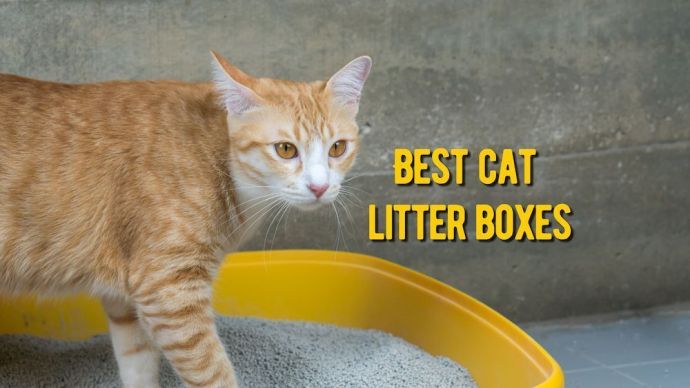 Cat Products & Toys Reviews The Best Cat Litter Box: TOP Rated Litter Boxes (Review)
Cat Products & Toys Reviews The Best Cat Litter Box: TOP Rated Litter Boxes (Review) - 224
- 0
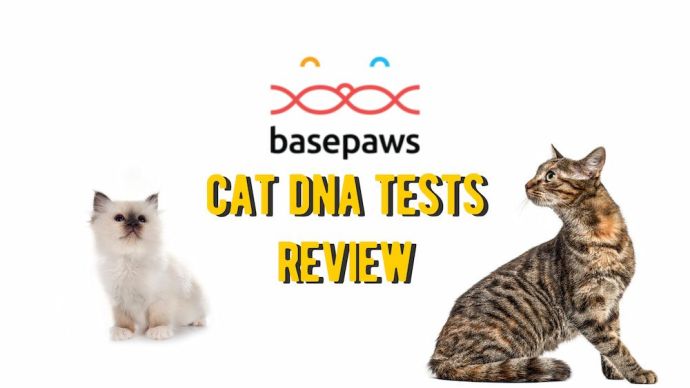 Cat Products & Toys Reviews Basepaws Cat DNA Tests Review: Does Basepaws Tests Worth Their Money?
Cat Products & Toys Reviews Basepaws Cat DNA Tests Review: Does Basepaws Tests Worth Their Money? - 84
- 0
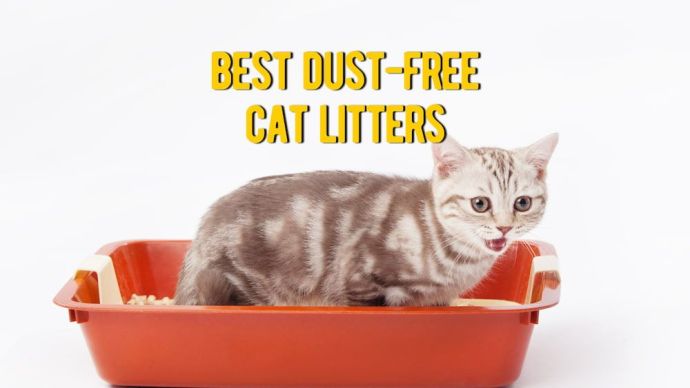 Cat Products & Toys Reviews The Best Dust-Free Cat Litters (Vet Approved Review)
Cat Products & Toys Reviews The Best Dust-Free Cat Litters (Vet Approved Review) - 223
- 0
 Dog Products & Toys Reviews The 10 Best Brush for Australian Shepherd: Review and Buying Guide
Dog Products & Toys Reviews The 10 Best Brush for Australian Shepherd: Review and Buying Guide - 13077
- 0









